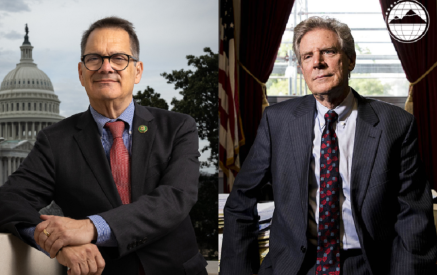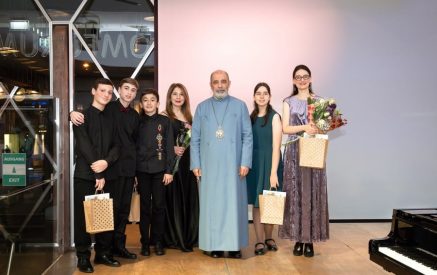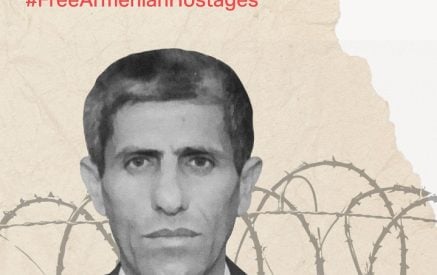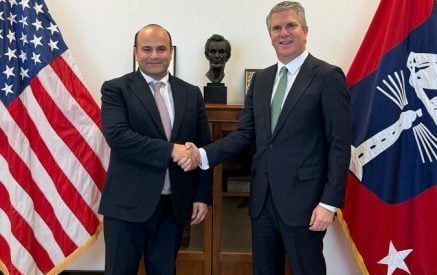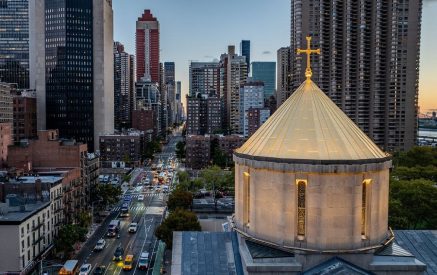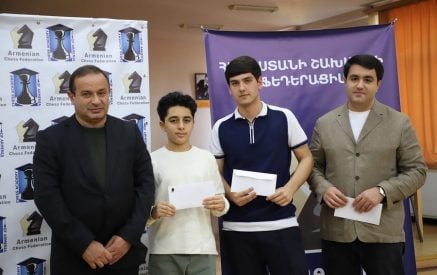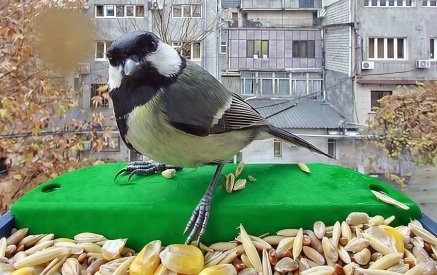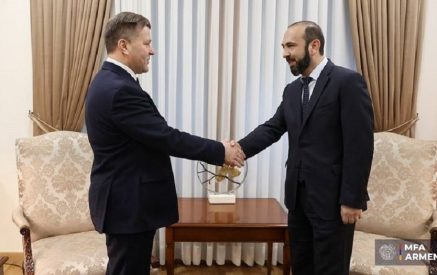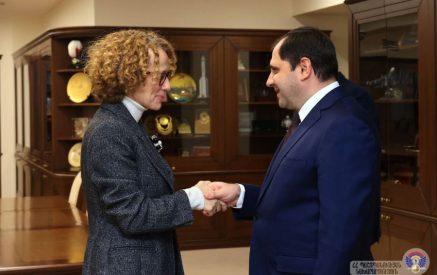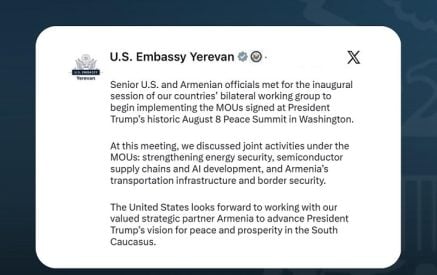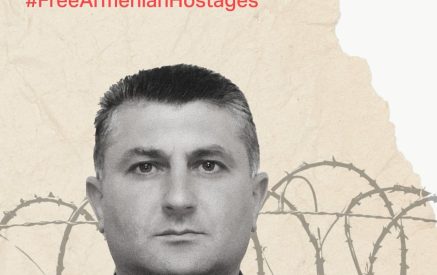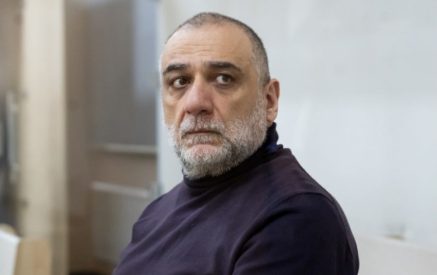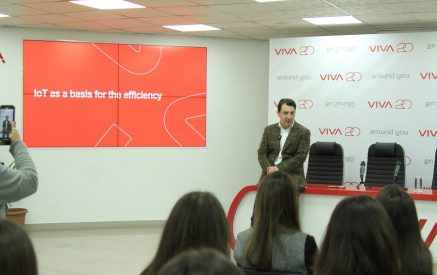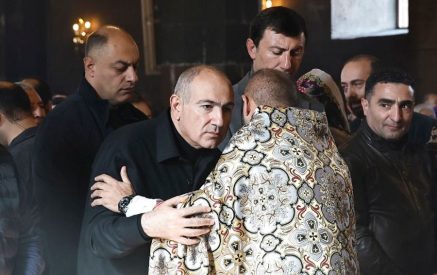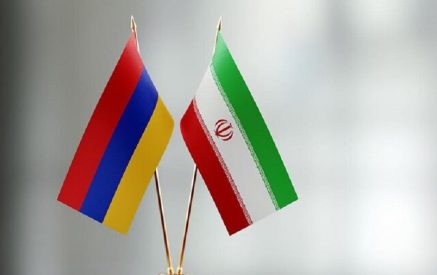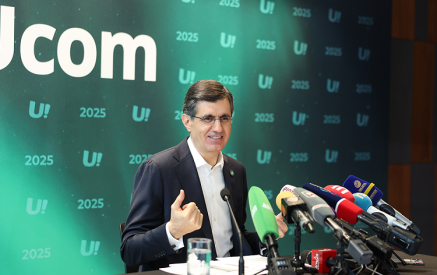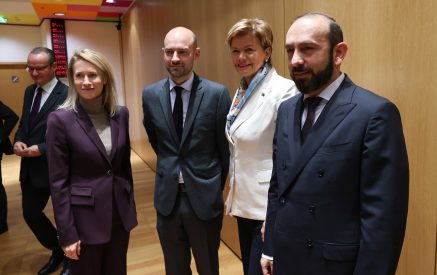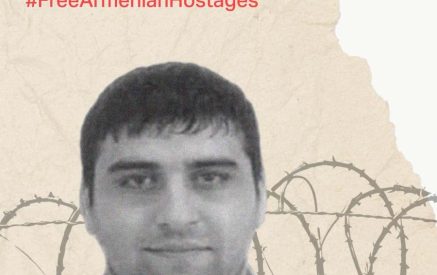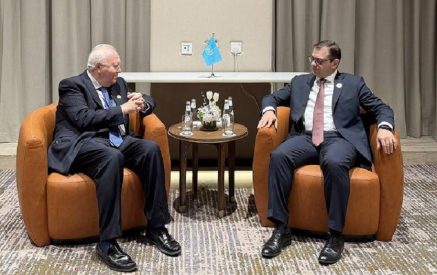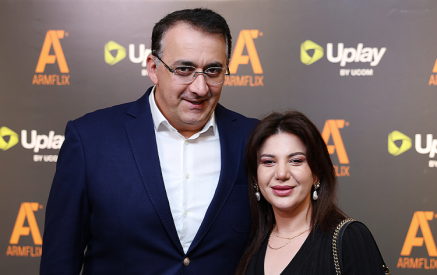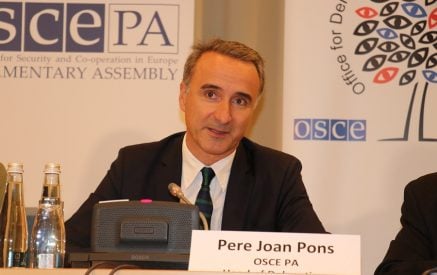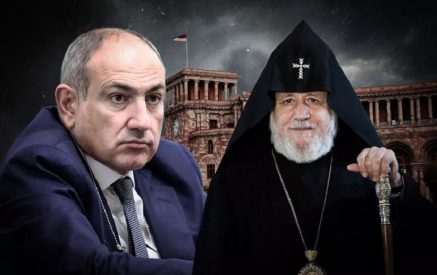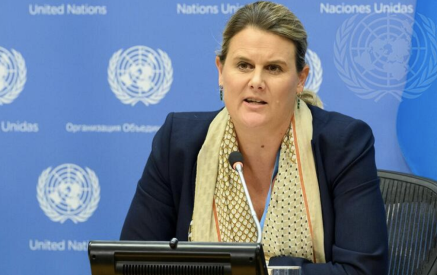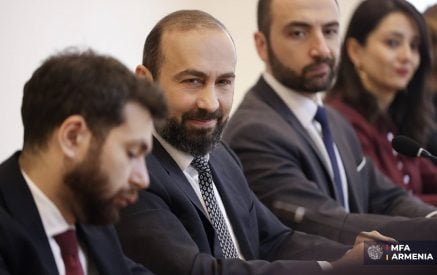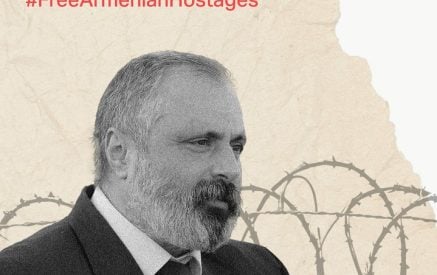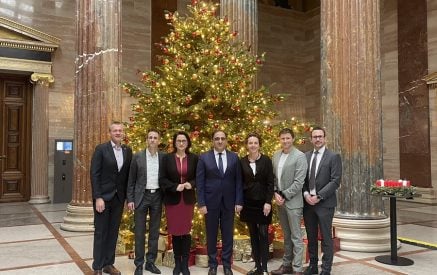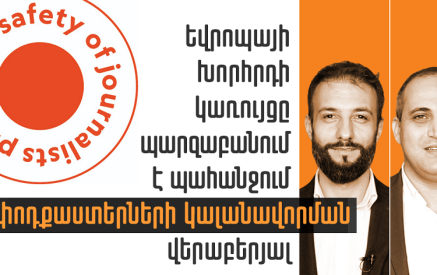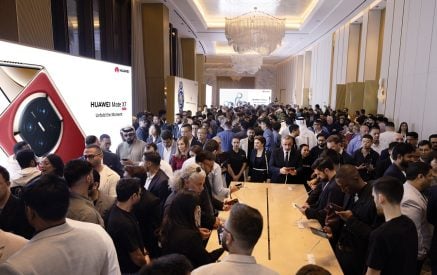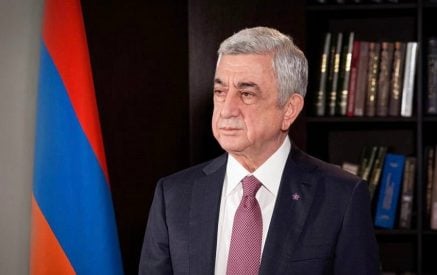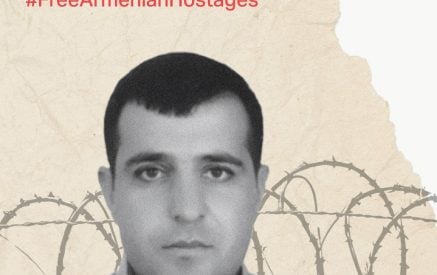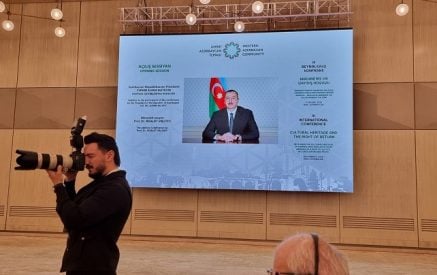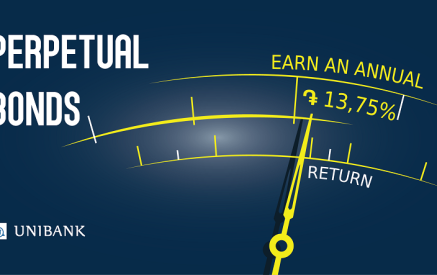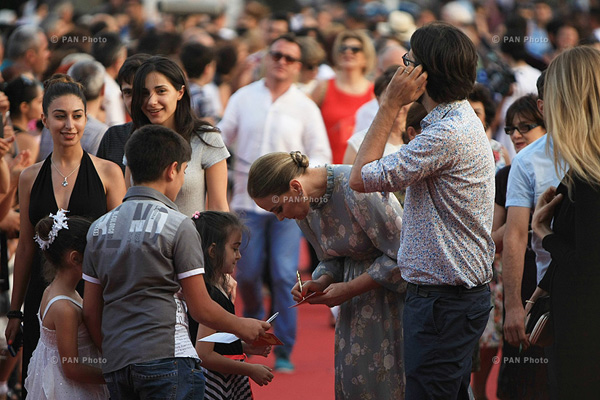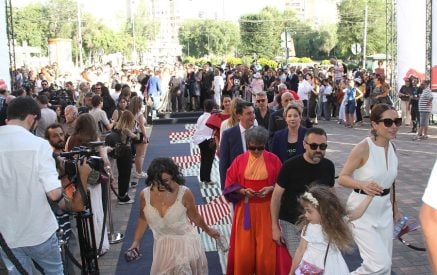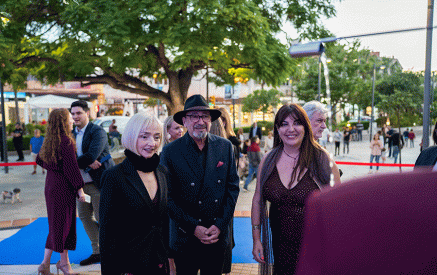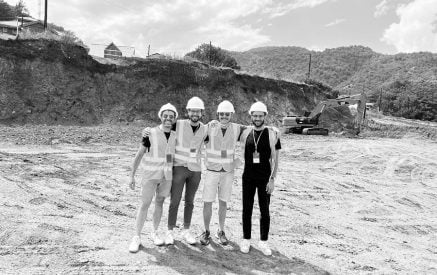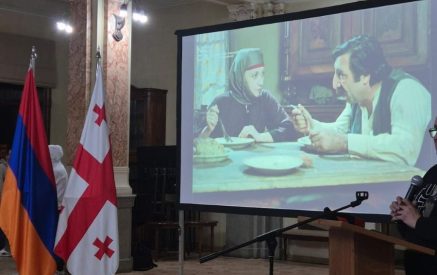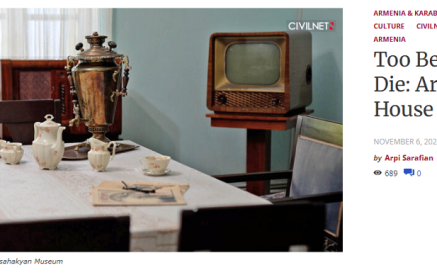Culture is the greatest capital in Armenia and cultural festivals are a great way to pave the country’s way to the worldwide audience.
“Yerevan Perspectives” International Music Festival is an independent cultural brand that has been hosted for the 17th time. The festival engages exceptional classical musicians. Despite the festival’s success, Sona Hovhannisyan, the Managing Director of “Yerevan Perspectives” believes that what the festival needs is sustainability to be able to deliver greater programmes. She says, “We can equally work with world famous festivals, as it is due to our professionalism, network and commitment that we can succeed in our work in Armenia. There are festivals whose directors are invited from abroad. In our case, we do our country credit, as the same workstyle would not reap any fruits in another country. We do need a board of trustees to maintain our sustainability, and to manage our funds, so that we do not have to think of ways retaining the project. The festival has been hosted for the seventeenth time and this time we should not think of retaining the festival but of coming up with ways of attracting about one million tourists to our country. We can definitely do this. “Yerevan Perspectives” can be one of the triggers for developing cultural tourism. We require additional resources and support for that. And the moment we have our board of trustees and make our festival a sustainable one, the picture will considerably change.”
It is worth mentioning that “Yerevan Perspectives” could bring such musicians and orchestras to Armenia that have not even been to the region before.
Read also
“For instance, in 2004 we invited the Kronos quartet, a legendary American string quartet that had never been either to the Caucasian region or the Baltic countries before. The idea of the quartet coming to Yerevan was so incredible that the then US Ambassador to Armenia said that the Embassy would cover half of the quartet’s fees. After the quartet’s arrival in Armenia, the embassy did pay half of the fees, though throughout our negotiations, the amount to be paid had decreased a lot. The people who had previously worked with Kronos could not believe their eyes when they saw the advertising poster. We had a similar experience with Vienna Philharmonic Orchestra or Amsterdam Royal Concertgebouw. We managed to bring such outstanding conductors as Lorin Maazel, Daniel Barenboim to Armenia, when our Estonian colleagues would not succeed in having them give concerts in their country. It was due to our festival that Evgeni Kissin came to the region for the first time after the collapse of the Soviet Union. He hadn’t visited Russia for several years back then and only next year is he planning to have a concert there.” says the Managing Director of “Yerevan Perspectives”. It is with great pride that she cites the words of European Commissioner for Education, Culture, Youth and Sports Tibor Navracsics, who called the festival unique.
It’s the credit of “Yerevan Perspectives” that the Berlin Philharmonic Orchestra, one of the best orchestras in the world, will soon visit Armenia with its concerts. “They told us they knew our festival quite well. It’s our past success that secures the agreement of these orchestras to give concerts in Yerevan. Obviously, it’s not relevant for this kind of orchestra who gave concerts in the country before them. Sona Hovhannisyan believes that Martha Argerich, an Argentine pianist, is the next musician to visit Armenia.
Armenia’s Dramatic Profile and the Indifference of Yerevan Municipality
“Highfest” International Theatre Festival has been hosted for already the fourteenth time. It is considered to be the main festival in former Soviet Union countries (with the exception of Moscow). Artur Ghukasyan, the President of International Performing Arts Festival, states that since 2007 the state support to the festival has decreased. Thus, in 2008, the festival budget made 35 million drams, whereas this year it makes 30 million drams. The Ministry of Culture has also cut “Highfest” budget this year. “The Ministry says it is not their own decision, but that of the Ministry of Finance, and the Ministry of Finance in their turn claim that it is the Government’s decision.” Artur Ghukasyan emphasizes the fact that “Highfest” festival develops the field of performing arts. The festival hosts such performances, which are no included into the repertoires of Armenian theatres. Artur Ghukasyan believes that the original performances hosted within the framework of the festival can shape taste, develop new outlooks and be a real eye-opener, as they tend to push talented people to stage new and interesting things. Festivals make countries more open, they can even make an impact on those countries, which are among the most open ones. Festivals can develop the economy, attract tourists, and pave new ways for businesses. Earlier businesses would not even think of generating income through arts. Now we encourage businesses to act. Another important thing is that festivals shape the cultural reputation of the country. I have attended Edinburgh Art Festival, Scotland’s largest annual celebration of visual arts. At other times, Edinburgh leaves an impression of a grey, grim city which is glorious but at the same time closed to people. It is neither inviting, nor unwelcoming. However, on festival days, Edinburgh has a completely different picture to offer. About 2500 performances are played there daily and all the people smile. This is what festivals can do.”
In response to our question about “Highfest” needs, Artur Ghukasyan says: “I do not want to reiterate myself and say finances. All the festivals require them. When I was studying abroad at Carnegie Mellon University, our professor asked us what we considered to be more important: money or ideas. To our unanimous reply that it was money he said that ideas were more important as they also comprised potential for money. Hence, it is not a matter of working little or badly, but creating the right opportunities and finding the right contacts.”
“Highfest” President says how disconcerting he finds the attitude of Yerevan Municipality. They should understand that in each country it is the responsibility of the municipality to support the festivals taking place in their cities. How is it possible to ignore your most important festival? State officials need to regard our field with a better and more serious attitude. It’s sad that in Armenia and other countries as well culture receives the least financial support. In times of crisis, it is the people engaged in the filed of culture that are first deprived of state support, then it is the turn of those in education. They won’t understand that it’s hard for people to retain their human qualities when they are far from education and culture. I am happy that today we have a range of festivals. And when one of them starts developing, the others follow its lead. When “Golden Apricot” International Festival hosted in Yerevan has success, people start going to the cinema and show interest in theatre. I do believe that all the festivals should help each other and discuss the problems they have.”
Great Film Industry of a Small City
“Golden Apricot” was hosted in the summer of 2016 for the thirteenth time. Interestingly, the sinister number thirteen did not affect the festival in any way, as its team is not superstitious but creative, diligent and interesting. Interstate agreements often associate Armenia with “Golden Apricot” and the cultural residency programmes always refer to it, as it is at these crossroads that Armenian culture meets the international one. Foreign tourists often refer to Harutyun Khachatryan, the film director and the founding director of the festival, as Mister Apricot.
Out of about 500 films in the Armenian film industry, 300 were screened during this festival. The festival also hosts master classes by renowned world stars and screens the best films. This year for instance master classes were hosted by such outstanding representatives of film industry as Fred Kelemen, Želimir Žilnik, Homayon Ershadi, Vitaliy Manskiy, Andrey Loshak. Jacqueline Bisset was the special guest of the festival.
Since 2007, when the Producers without Borders initiative was launched, regional and Armenian projects started receiving grants, which resulted in the festival collecting and allocating 61500 Euros, 177000 dollars (excluding master classes and training sessions). Out of this amount, 23000 Euros and 120000 dollars were spent on the projects initiated by Armenian producers. In this respect, we should consider the contribution of the ‘Golden Apricot” International Film Festival to the development of the Armenian film industry. Most films by Armenian producers took part in partner festivals through the channels of the “Golden Apricot”. Armenian films were screened in about 50-60 countries across the Netherlands, Argentina and Japan due to the festival.
Harutyun Khachatryan, who favours working more than talking about his work, tells us about the impact of the “Golden Apricot” International Film Festival on the country’s reputation. Apparently, only Euronews made more than a dozen pieces on Armenia due to the festival. Hence, our country was mentioned in a positive context and not in that of genocide or earthquake. The BBC and other international media occasionally covered the festival.
Mr. Khachatryan believes the cinema to be a great weapon and the greatest diplomacy in the hands of a small nation. As far as problems are concerned, the “Golden Apricot” has to tackle the same challenges as other festivals.
The festival’s budget is not large either. The annual state budget allocated to the festival makes 50 million 500 000 drams. However, the priorities of the festival staff are not having their plans upset and not having their projects remain on paper because of some negligent officials. They do believe that even the craziest ideas can come to life.
Gohar HAKOBYAN


